
On this public day on psychedelics, researchers transcend the media hype
Never before has so much research been carried out on the therapeutic effect of psychedelic drugs. Researchers at the LIBC Public Day are happy about the effect the drugs can have on depression, anxiety and PTSS, but at the same time they have some doubts. ‘The hype is bound to crash before long.’
'On 19 April 1943, chemist Albert Hoffman experienced his first LSD trip,' Michiel van Elk, psychedelics researcher at Leiden University and organiser of the public day, told a packed Stadsgehoorzaal. It went like this: ‘He had already discovered the substance five years earlier, but at first it had little effect in test animals so Hoffman left it on the shelf. That afternoon he accidentally ingested some and entered a dream-like state. Cycling home would be too dangerous, so he asked his lab assistant if she would take him home on the back of her bike. During the bicycle journey he had the strangest hallucinations. Later it became apparent that he hadn’t ingested just a small amount of LSD, but an enormous dose.’
-
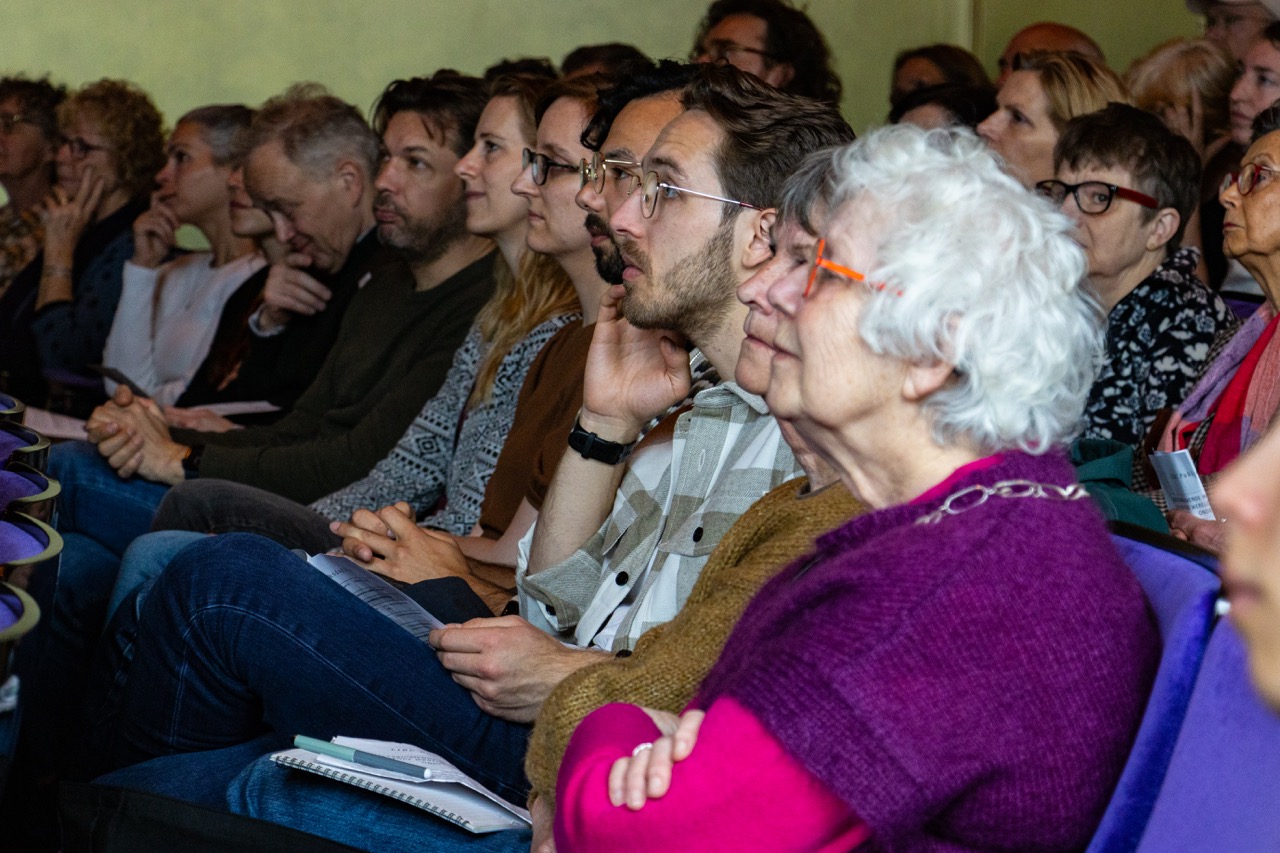
Just under half of visitors have experience with psychedelics. -
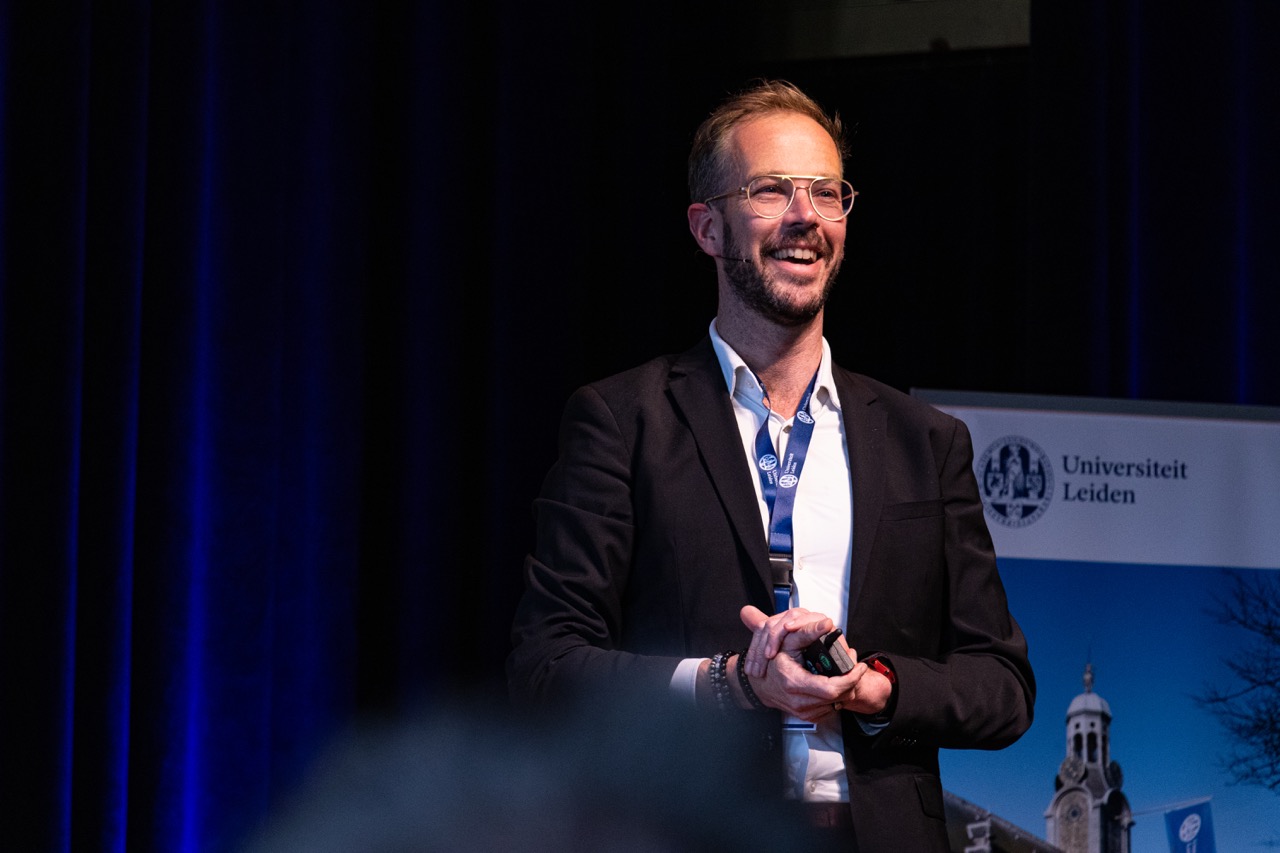
'There is more research being carried out on psychedelics now than in the 1970s,' Michiel van Elk explains. -
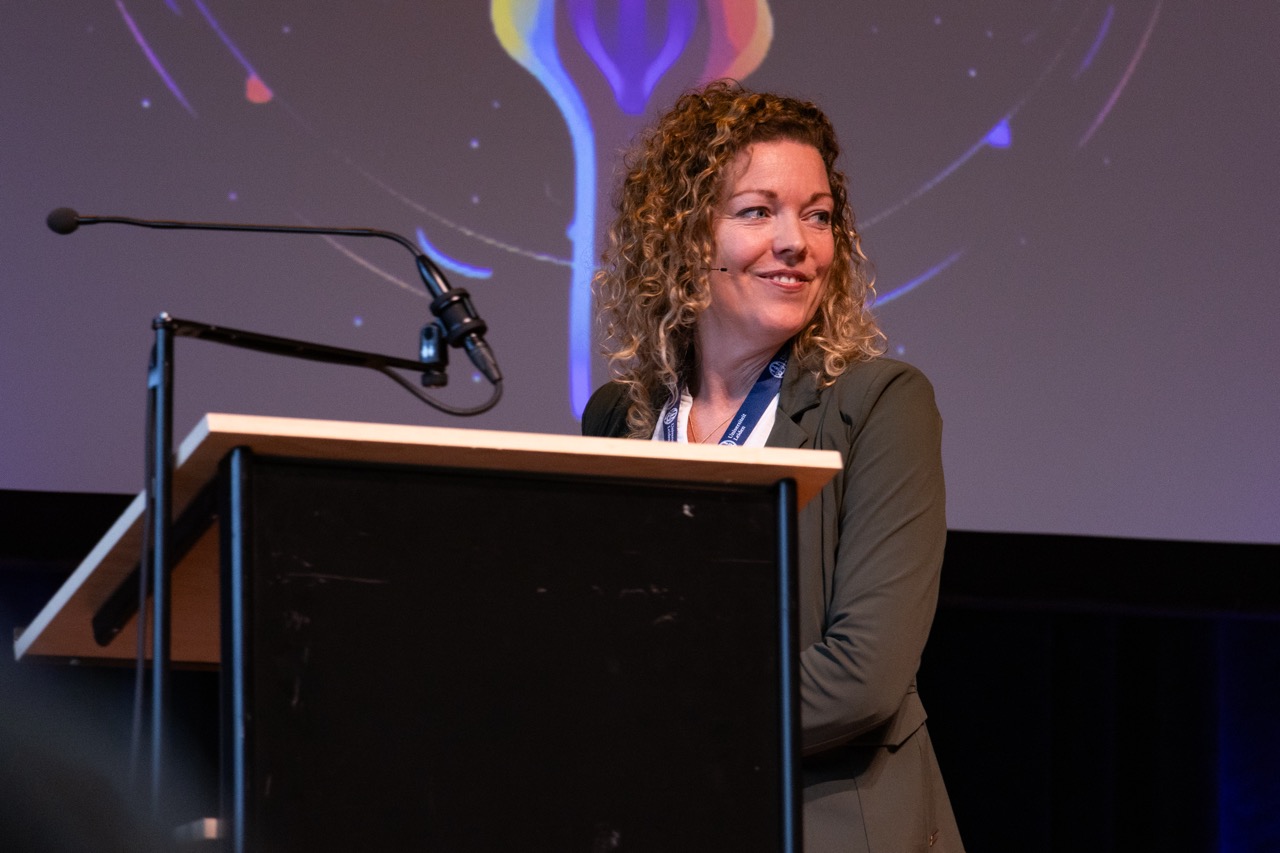
Kim van Oorsouw conducts field research on the health effects of ayahuasca in a ceremonial setting. -
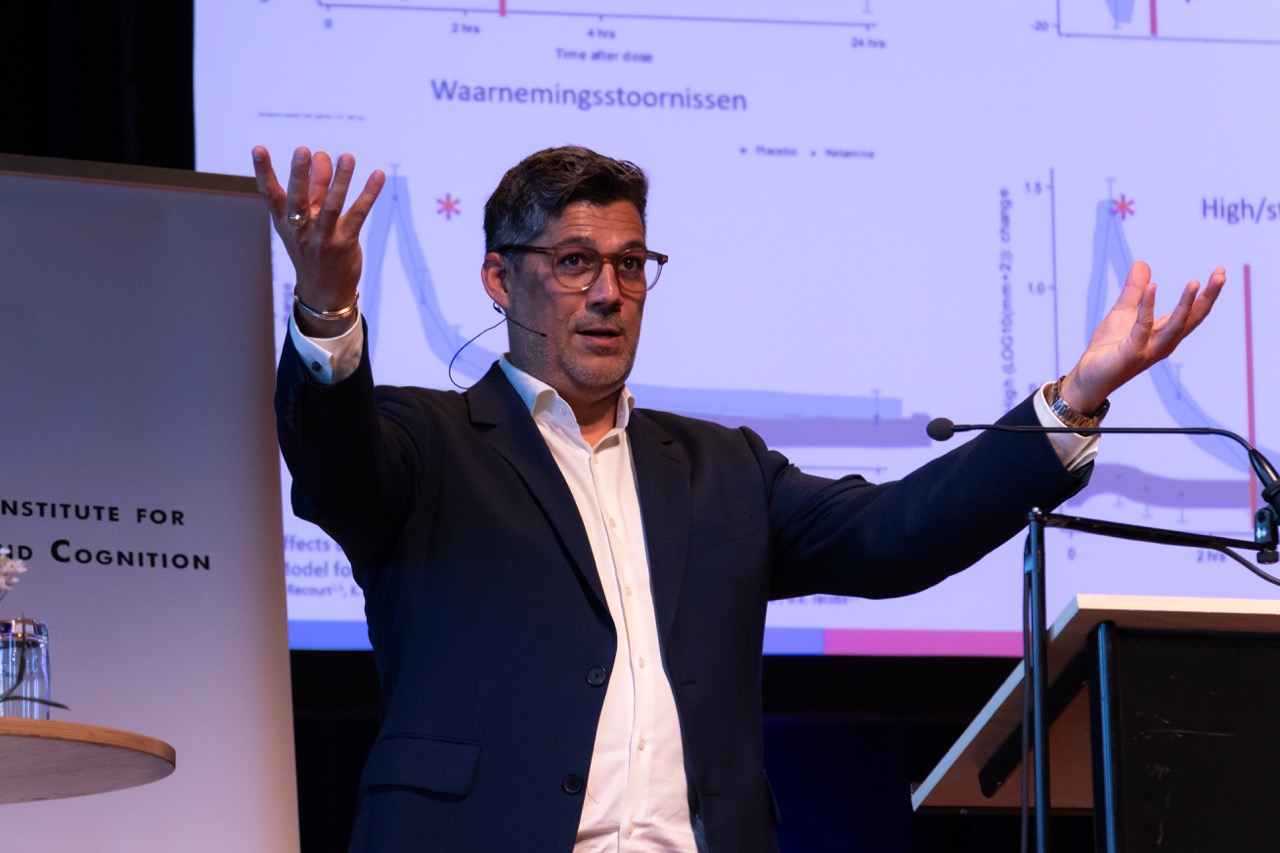
Gabriel Jacobs is a clinical pharmacologist and head of the psychiatry department at the Centre for Human Drug Research, where he conducts preclinical research into new treatment methods. -
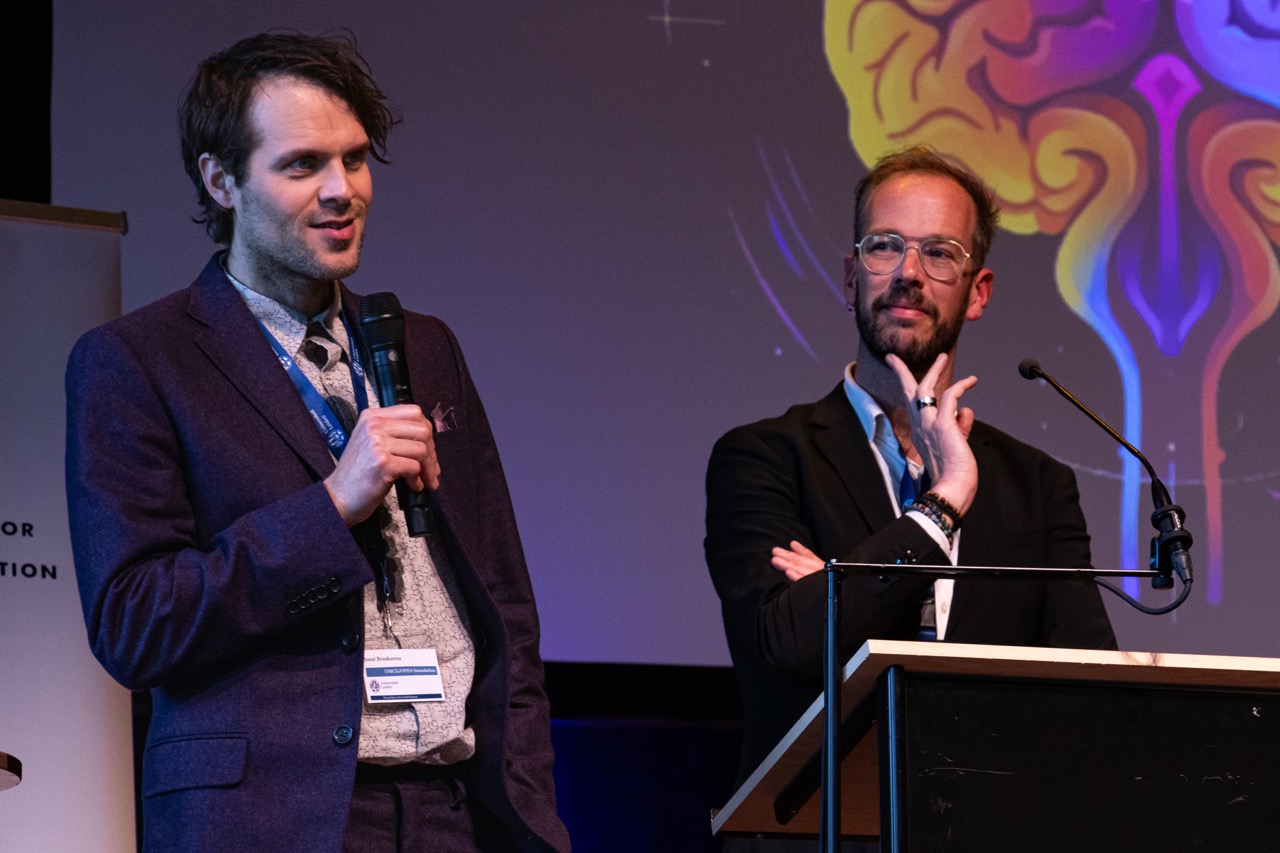
Joost Breeksema is a postdoc researching the experiences of patients and therapists in treatment with psychedelics: 'Due to miscommunication, patients sometimes feel unprepared.'
Psychedelics in the treatment room
In the subsequent years psychedelic drugs played a key role in the flower power movement and in the therapist’s treatment room. Psychedelics, such as LSD, MDMA, ketamine and magic mushrooms, were thought to bring memories and emotions to the surface and so help reduce depression, anxiety and post-traumatic stress disorder. Van Elk: ‘In the 70s a lot of research was done in America and Europe on the effect of psychedelic substances on psychological complaints, but the war on drugs halted this trend. Over the last ten years this research has taken off again.’ What could psychedelics mean for people with serious psychological problems, and what are the risks attached to psychedelics research? Therapists, psychiatrists and doctors answer these questions with accounts from their research practice.
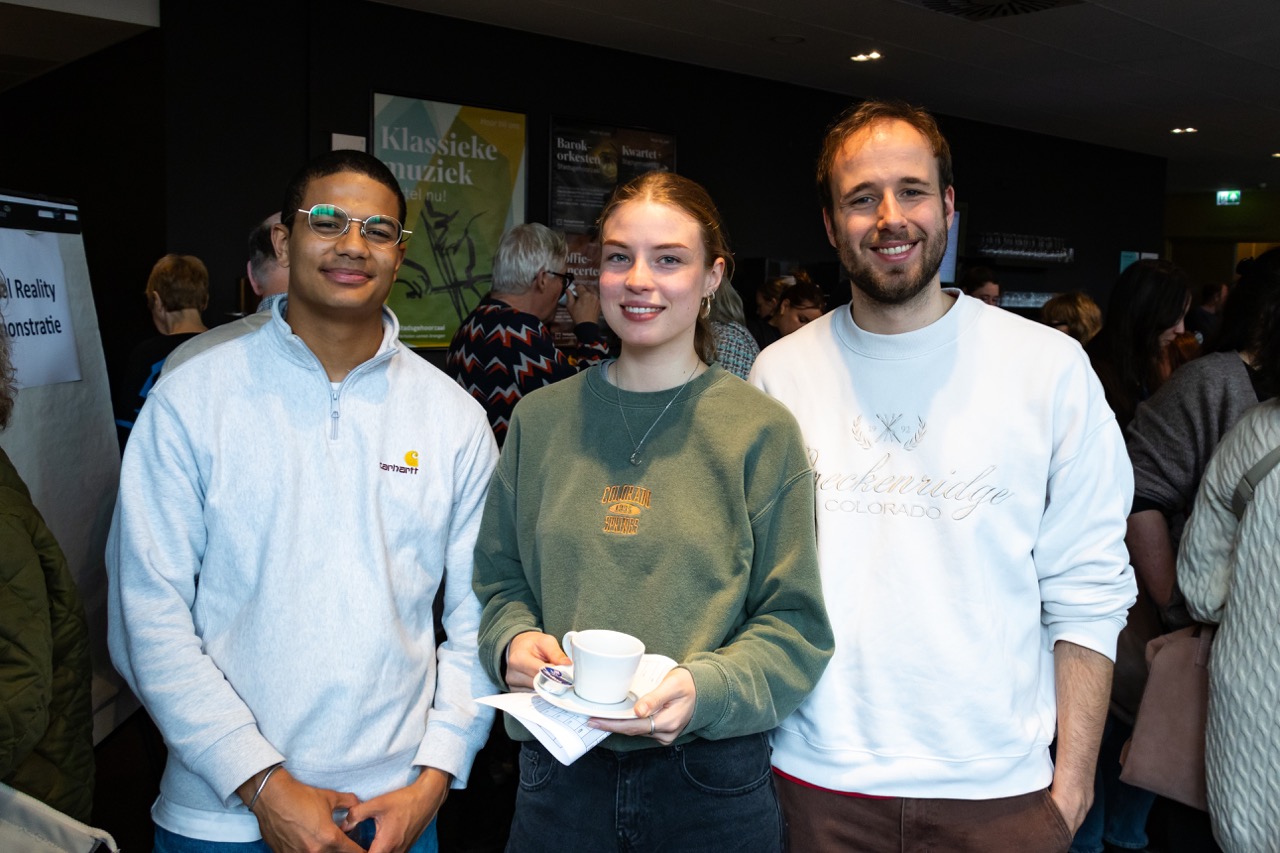
‘Who knows, maybe one of us will work in this field later’
Vincent (left): ‘I was tipped off about this open day during my internship in the neuropsychology department of the VU. I apped Sanne and Joram to ask if they wanted to come along too; we know one another from the bachelor’s in Bio-psychology. It’s great to find out what the state of the art is today. One thing in particular that I didn’t know is that researchers are now waiting for the FDA to approve MDMA for use as a medicine.’
Sanne: ‘As trainee scientists, I think we can learn a lot today. Do I have any experience of psychedelics? I do, and I’m really enthusiastic about the positive effects they can have. In therapy, but also outside that, if you don’t have any psychological condition, they can make you open minded. I think psychedelics can offer a lot of benefits.’
Joram: ‘I was amazed at how far they have already advanced with MDMA in psychotherapy. At first it was all moving so slowly, and how the substance could well be approved during this year. I hadn’t expected that. I think it’s important to be aware of these developments; who knows, maybe one of us will work in this field later.’
MDMA helps with trauma
Psychiatrist Tijmen Bostoen works at Centrum ’45 and does PhD research on the treatment of post-traumatic stress disorder using MDMA-assisted therapy. ‘Around forty percent of people with PTSS don’t respond to standard treatments such as psychotherapy, medication and EMDR. In my research I see that therapy with MDMA often leads to a breakthrough: you start to understand yourself and others better.’ He believes this is because MDMA enormously reinforces the feeling of empathy, and you get to understand yourself and others better. ‘With trauma, empathy is damaged: people become hard on themselves and have less trust in others. During the treatment sessions, where the patient is guided by two therapists, they learn to treat themselves and their trauma with more compassion. These sessions are intense, transcendental experiences that put everything in a new perspective.’
Truffles to combat depression
This is something that is also recognised by Renske Blom, psychiatrist at NPI and Arkin, who was involved as lead therapist in a study on the treatment of depression with psilocybin, the active ingredient in magic mushrooms and truffles. ‘The people who took part in our study had struggled for years with persistent, hard-to treat depression. They were stuck in negative thoughts and emotions and also resisted the experience.’ A capsule with psilocybin shook up that negative spiral of thoughts. ‘Patients became more sensitive to emotions and experienced how they were lodged in the body. Ruminative thoughts fell away and biographical memories came vividly to the surface, often linked to intense emotions.’ With psychedelics, people sometimes sense that they are part of a greater whole, something that researchers refer to as ‘ego dissolution’. ‘Some participants found that wonderful, while it made others anxious. That’s why it’s important to give meaning to the experience after the therapy sessions. We call that “integration”. That can be done through discussions with a psychologist but also by writing about the experience or going for walks.’
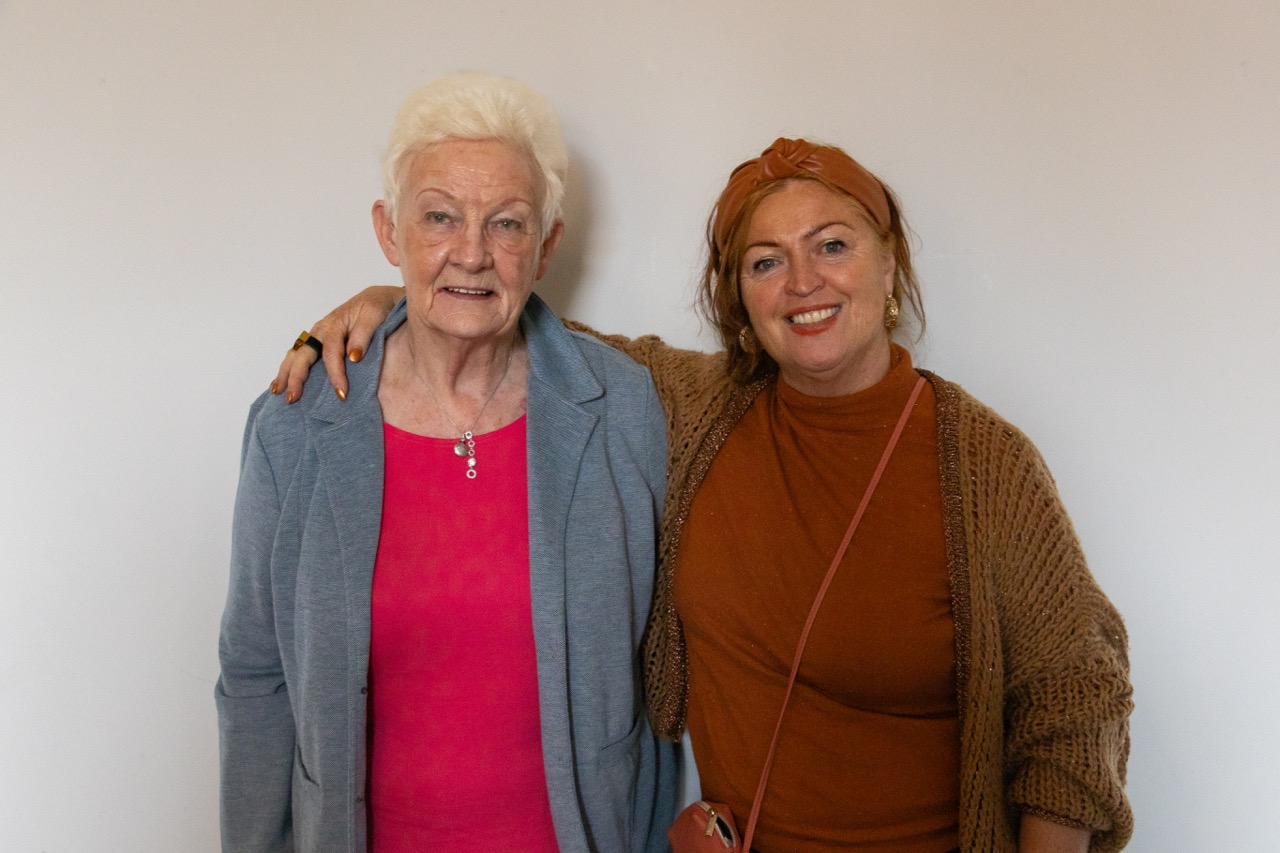
‘It’s dangerous for people use psychedelics to self-medicate’
Loes (left): ‘I have occasionally experimented in the past. I wanted to know what it’s like to smoke weed. What does it feel like? That’s very different from my two sisters, who aren’t in the least bit curious. Not everyone feels the same. What are my thoughts about today? Very interesting. I also want to know if research has been done on other substances, like narcotics, for example.’
Agnes (right) ‘I was born in Poland in 1964, and, no, I didn’t experiment wth psychedelics when I was young. I find this topic interesting because it’s about controversial treatments that offer hope to people who are suffering inwardly. As a psychotherapist, from Israel I’m involved with the victims of 7 October. I see what unbearable trauma that caused. These substances give me hope. But I am concerned that people may apply psychedelics as self-therapy. That’s dangerous. As the speakers stressed: it’s important to have someone who stands by you and supports you, in line with set protocols.’
Abandoned
Psychedelics research may be developing fast, but for scientists it’s often a case of looking for the right approach, says Joost Breeksema. He is director of the OPEN foundation and is a postdoc at the UMCG (University Medical Centre, Groningen), where he carries out research on the experiences of patients and therapists during treatment with psychedelics. ‘Sometimes patients aren’t well prepared and there can be miscommunication. In a study with ketamine, one participant, for example, heard that the substance would only have an effect after a number of sessions. The doctor meant that the ketamine would have a permanent effect only after some time. But, after the first dose, the patient experienced strange bodily sensations, which caused some agitation and anxiety.’ A number of the patients who took part in this ketamine study also felt abandoned. ‘Nursing staff were busy and couldn’t sit with the patient the whole time. This made it more difficult for the participants to let go of control, while that is so important with psychedelics.’
Pinch of salt
According to Michiel van Elk, we should take the results of psychedelics research with a pinch of salt. ‘A lot of cherry picking goes on: the promising results make the news far more than the conflicting findings. The people who take part in the research often already have experience with psychedelics and are positive about them. In a lot of research, a small random sample is used, and it’s difficult to do blind research. The people given the placebo realise that pretty quickly.’
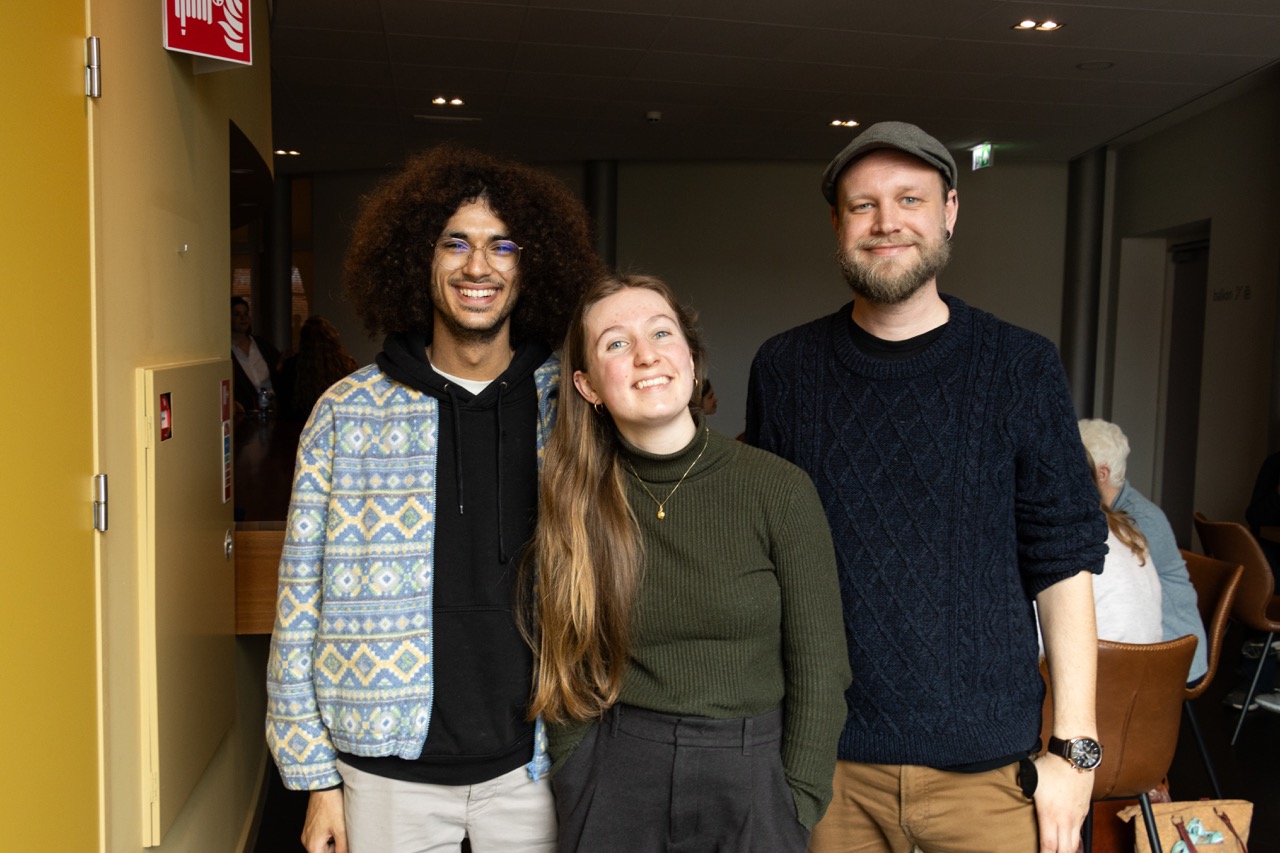
‘I understand how psychedelics can remove certain barriers’
Taha (left): ‘I studied chemical technology and have always been interested in neurochemistry and pharmacology. Now I work as policy adviser in environmental science, which is very different. I was interested in the term ‘psychoplastic’ that anaesthesiologist Albert Dahan mentioned. That’s the idea that molecules can have a plastic effect on your brain.’
Sanne: ‘I’m currently in my fifth year of Medicine, so I’m interested in the effect of psychedelics in the medical world. I can say with honesty that I have used drugs, and I recognised the account that one of the researchers read out, about ayahuasca inducing a kind of inner healing intelligence. At first I was sceptical, but I could relate to the comparison that was made with a wound. In principle, your body heals a wound by itself, but someoe has to clean it and put a plaster on it. In that sense, I understand how psychedelics help you can heal yourself, with the help of other people.’
Jan-Willem: ‘I’ve almost finished my Linguistics programme. I do use magic truffles on a regular basis and I recognise a lot of what was described about how psychedelics, combined with therapy, removes certain barriers. In my view, psilocybin itself doesn’t causes that, but it does make it easier to do therapy. I also think it’s good to remove the stigma from psychedelics. Yes, drugs can be misused, but drugs have been used to good effect for a long time in many places. Why shouldn’t we do that with these substances?’
The hype is going to crash
'Right now there’s a hype going on, and it’s bound to crash. I hope that there will be enough left to carry on,’ says Robert Schoevers, professor and head of the department of Psychiatry at the UMCG, where he is coordinates the research on the therapeutic effects of ketamine and psilocybin. ‘Psychedelics aren’t going to be a solution for everything. And there are still a lot of questions to be answered. Yes, ketamine works for people with depression, but is that a lasting effect? Can it be combined with other psychedelics? With what kinds of psychotherapy do psychedelics work best? And how many sessions are needed? So far there have been very few phase 3 studies, where psychedelics are tested on large groups of participants. Then the FDA, the American drugs authority, still has to approve it as a medicine and after that negotiations have to be held with the healthcare insurers. That whole process can take another five years, Schoevers estimates.
-
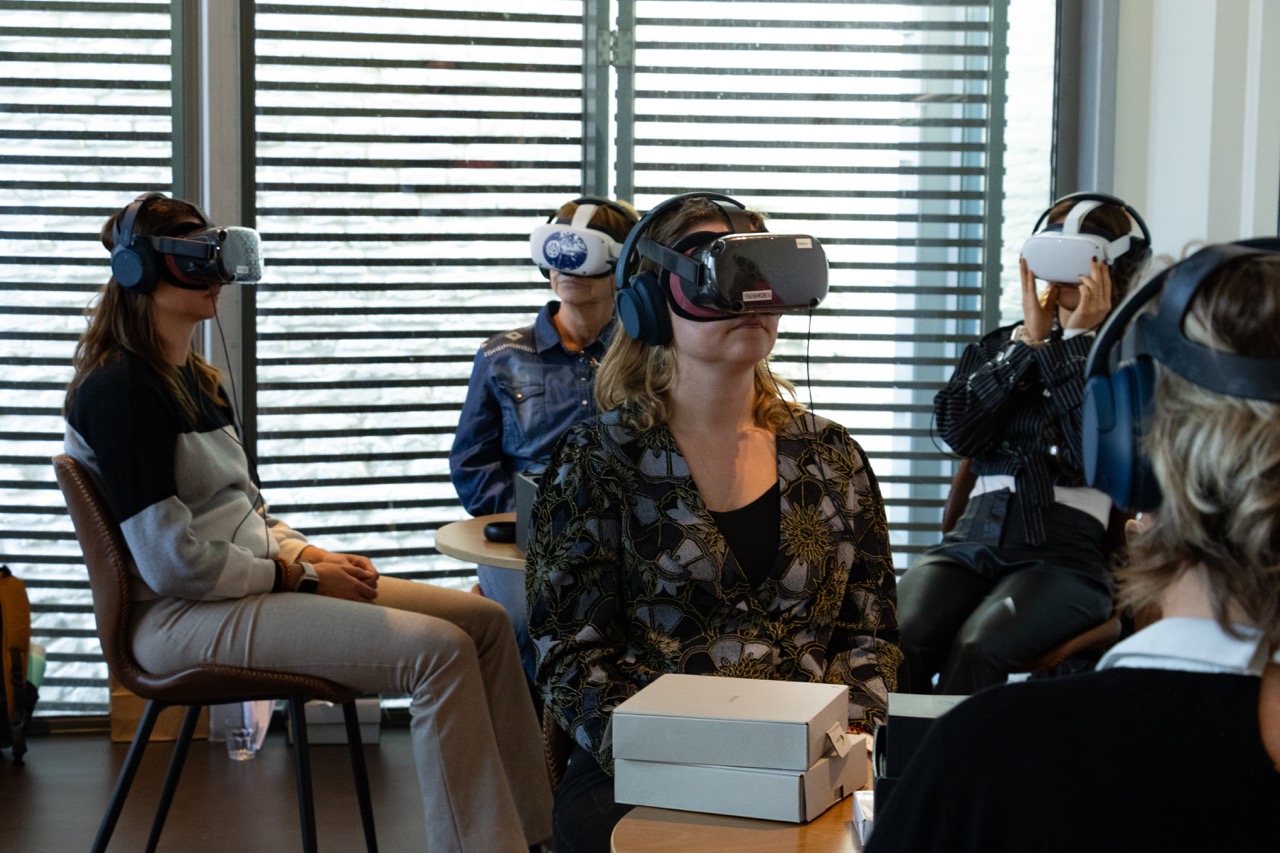
During the break, visitors have the chance to experience a virtual psychedelic trip. -
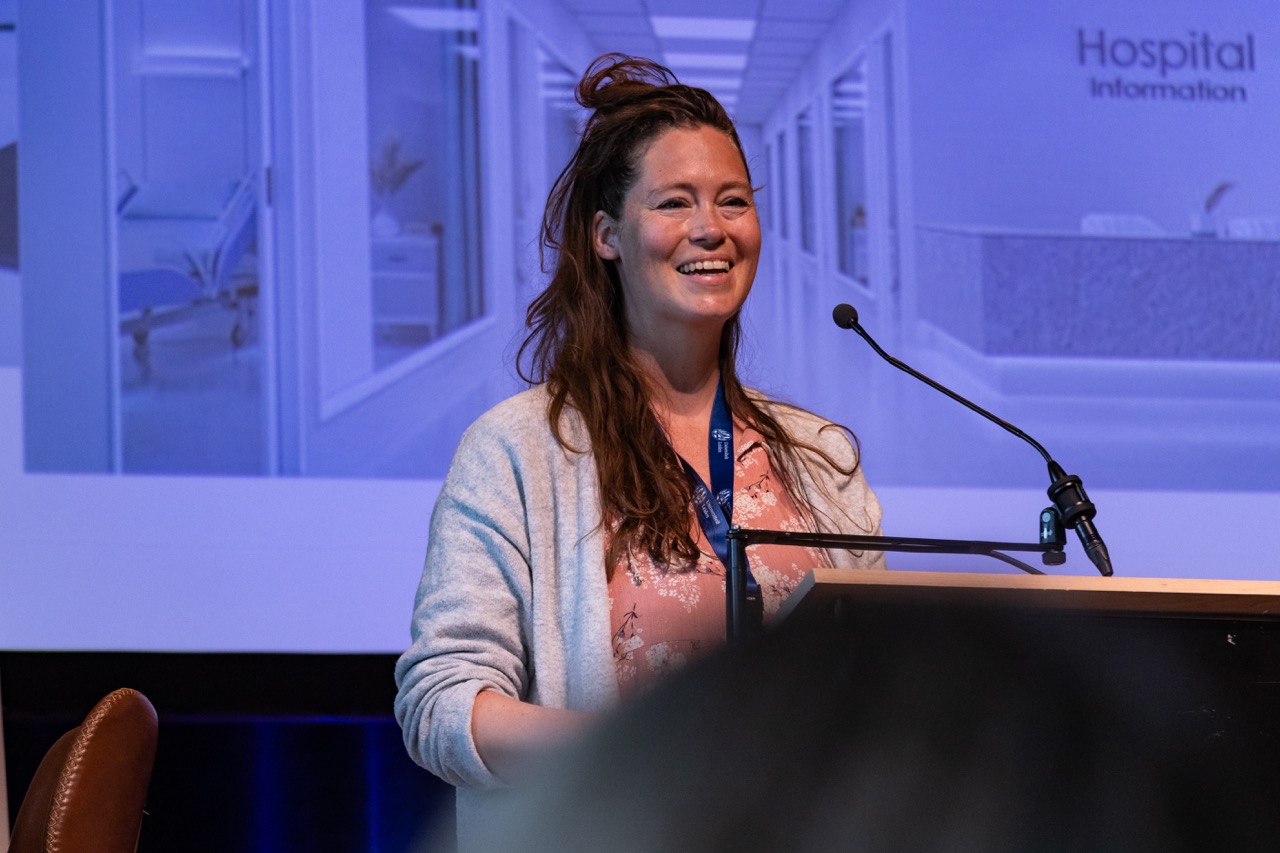
Renske Blom works as a psychiatrist at NPI and Arkin and has been involved as lead therapist towards a study for the treatment of depression with psilocybin, the active substance in magic mushrooms and truffles. -
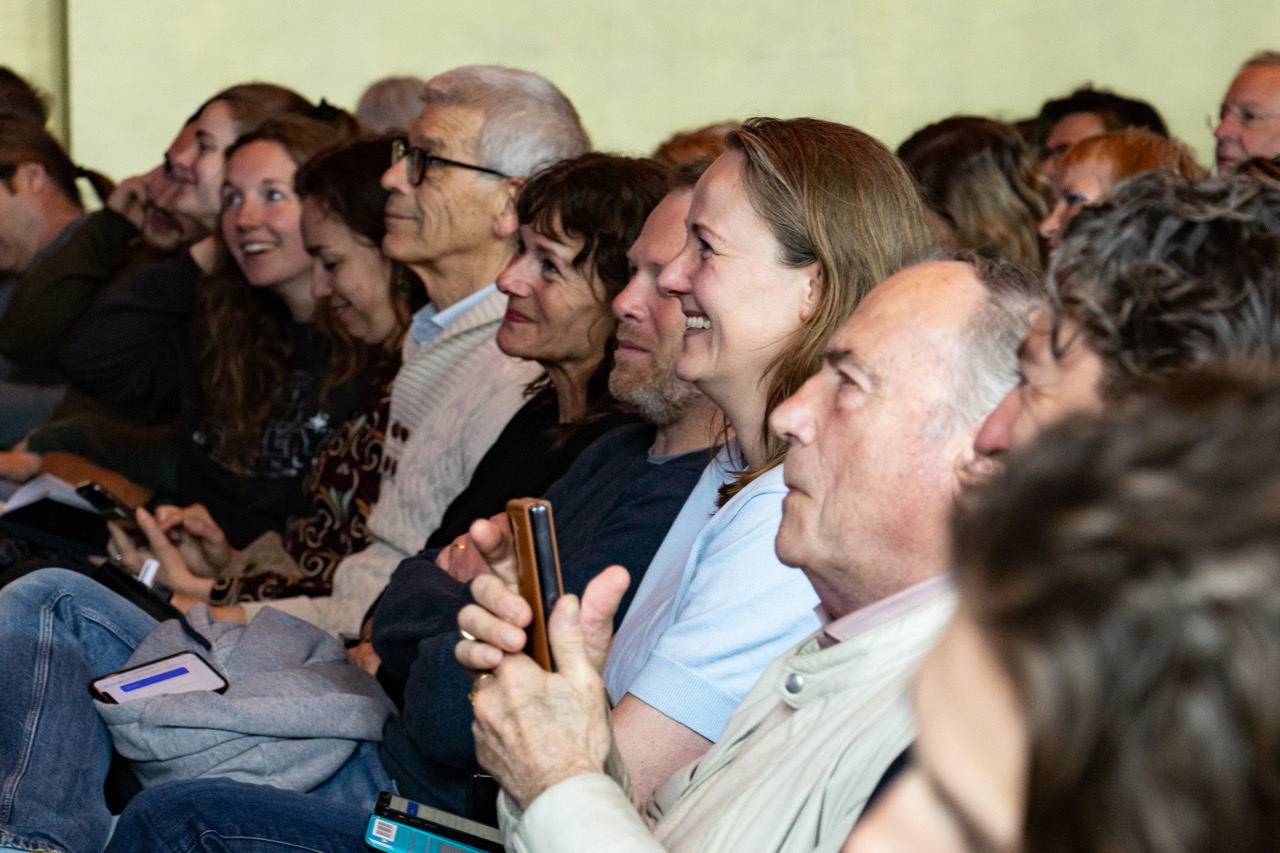
Half of LIBC visitors are 'hopeful' about the future of psychedelics in the treatment room. -

Patricia Pisters is professor of media studies at the University of Amsterdam and researches the depiction of psychedelics in our culture. -
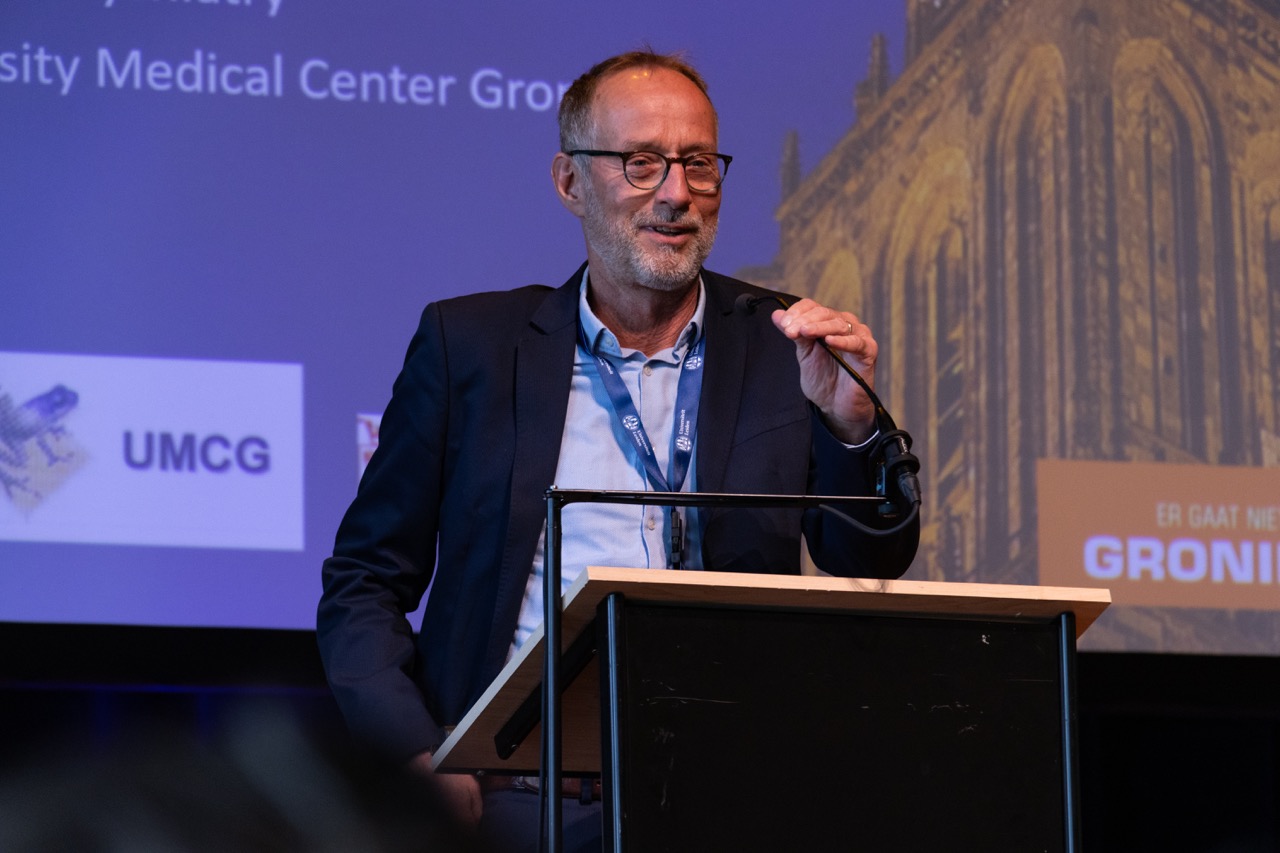
'Psychedelics are not a silver bullet that is going to solve everything,' says Robert Schoevers, professor and head of the psychiatry department at the UMCG, where he coordinates researchers into ketamine and psilocybin treatment.
Trip with psychedelics
Until then, inquisitive visitors could have a foretaste in the breaks of the public day with a VR installation with which Michiel van Elk and his team carried out research at Lowlands last summer. The researchers tried to recreate a psychedelic experience with the VR environment. Van Elk sounds out the audience: What do you think about this little trip into the world of psychedelics? ‘For me, it confirms what I already thought: it’s not for me,’ says a woman in the audience. Another person thinks that things could shift up a gear: ‘If you really use psychedelics, you also get physical sensations. As far as that’s concerned, this is nothing like the real experience, which is a lot nicer.
